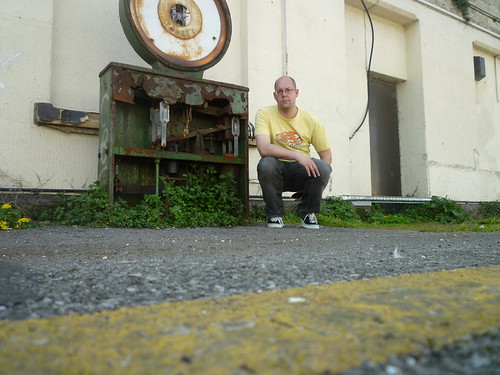
Friday, June 10, 2011
Leaving

I’m running a business. It’s called my life. The gap between what I have to spend, and what I make, is my profit. And there’s not enough of that profit. My costs – like everyone’s – are going up. My income has remained static. That gap is shrinking. If my situation does not change, I will have to change my line of work, or go out of business.
As part of the leaving process at work there have been numerous conversations with friends in the office.
The most common question is “Why am I leaving?” My reasons are not unique. And many people I have spoken to have alluded to similar reasons as to why they want to go. The consensus is that if you are unhappy there, it’s probably for the same reason I am.
The next most common question is “Have they any jobs going?”. Even when I was at the Royal Mail, and they were making 30,000 people redundant – including me – it was a happier place to work than where I used to be.
For the past year I have been aggressively seeking a new role. I do not want to work for a business with a surplus equivalent to £30,000 per employee that refuses to provide its employees with a pay rise in times of spiraling inflation. If the business had made very little money or a loss, I would understand the reasons. There is no compelling reason apart from a ethical decision to bring down salary costs. I will not apologise for being a burden when I am providing a valuable service to the business and the customers. I am a cost. And what I provide is worth more than the cost I incur.
My shrinking living standards have subsidized their surplus. Life is an expensive business and I have made redundant as many costs as I reasonably can.
Last year, salary was not improved by a penny. In real terms, whilst the Consumer Price Index – at 4% per annum, and the Retail Price Index at 6% per annum, and food at 5.7%, and fuel at 15.8%, and train fares at 12.8% per annum, have risen the past 20 months, my salary remained absolutely static. A 1.3% payrise won’t even cover the 12.8% rise in train fares, and that’s not including tax.
My employer probably saved a six figure sum or so not providing payrises : less than 1% of the declared surplus. In the meantime, several hundred people were given a message. The message was brutal, and fairly short.
If you don’t like it, leave.
And people have left. In the past month I understand 15 people have resigned. That’s a very high percentage of staff. If it were a call centre, or perhaps, a building site – an occupation with a traditional, industry-wide high burnout rate, I would understand. These are finance, customer services. The kind of roles where a four or ten year tenure isn’t rare.
Each person leaving can cost up to £20,000 or £30,000 to replace. In lost productivity, interview costs, replacement, sift, agency and training / induction costs. If 9 people leave, the decision to save money has cost more than it saved in cashflow terms. It’s numerically illiterate.
There are other reasons. To talk so in any great detail would be to discuss people who either aren’t here to present their side of the story, and to break a degree of confidentiality.
Performance, sickness, and other factors have been unevenly, and unfairly managed. Some people can get away with murder. Other people can’t even get away with dinner.
It’s easier to take people and make them successful if they understand why decisions have been made and involve them in the decision.
The direction the business is taking has not been communicated effectively. If they do know where the business is going, they aren’t telling people where it is headed or how it’s going to get there.
Overall, I’ve felt for a long time that the options are put up or leave.
I’ve worked in the public sector 16 years. I know that I’m not going to be a millionaire in the Public Sector. But there are other factors. I enjoy working with people, and seeing the positive impact I have in changing peoples lives and the society we live in : it benefits society, and not a balance sheet. I have made a trade-off : lower pay overall, for better working conditions and an element of job security. Take that away, and there is no incentive for me to stay.
The final factor for me is career progression. If I stay there, I am stuck. There is nowhere for me to go in this role for at least two or three years. Faced with stagnating income, the choice is either to slowly get poorer and poorer or leave.
So I looked for an exit. And I found one. I didn't want to leave : I couldn't justifying staying anymore. It's the hardest professional decision I have ever made.
Comments:
<< Home
It was a difficult decision, but one that ultimately seems to be the right choice for you. It may be cliche, but life really is too short. Cheers!
Post a Comment
<< Home

